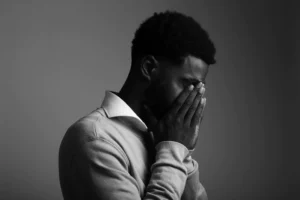If there’s one thing my friends know about me, it’s that I love books. I have been a voracious reader since college. I always have an inexhaustible stack — in a variety of genres and disciplines — that I’m working my way through at any given time.
My love for reading has shaped me more than most things. But it seems that “bookworms” may be a dying breed. Back in 2015, Pew Research Center did a study on the reading habits of Americans. The study revealed that nearly 30 percent of Americans hadn’t read a book all year.
While true bookworms may be hard to come by, reading is a fruitful discipline (and an enjoyable one) that is worth adding to the regular rhythm in your life. Reading shapes us intellectually, emotionally and even spiritually.
We Are Made for Stories
As human beings, we are drawn to narratives. Storytelling is central to human existence. Stories shape our vision of the world and give us tools as we seek to make meaning of our experiences.
Stories also help us feel less alone, like we share a history or space of belonging with others. I’d argue that different genres of reading shape us in distinctive ways. Here are four categories of books and the effects each can have on the average reader.
Reading Fiction Helps Us Grow in Empathy and Understanding
Many people are drawn to reading fiction, which is no surprise given our natural love of story. In fact, as Cody C. Delistraty writes in his article on storytelling:
Stories can also inform people’s emotional lives. Storytelling, especially in novels, allows people to peek into someone’s conscience to see how other people think. This can affirm our own beliefs and perceptions, but more often, it challenges them.
With fiction, we enter into the stories of characters, which helps us remember how complex life is and how complex people (and their problems) are. Fiction can help us be gracious toward others as we understand that all of us are doing the best we can amid life’s many challenges and heartaches.
A study cited by Delistraty found that reading fiction considerably increased empathy toward others, particularly those the readers viewed as outsiders, such as those of a different nationality. So while reading fiction is entertaining, it also forms us — often unconsciously — into more empathetic individuals.
As I read Marilynne Robinson’s “Gilead,” the reflections of a pastor near the end of his decades-long ministry, my heart softened toward the challenges many pastors face and how they are often the first person others choose to blame or complain about.
While reading Shusaku Endo’s “Silence,” which chronicles the journey of two Jesuit missionaries during the time of Japanese persecution of Christians in Japan, I thought about how easily I lean on my own assumptions about people. When the two missionaries witness the wretched conditions in which these people live, they struggle with doubt and the role of faith in people’s lives.
Fiction helps us recognize the commonalities we share as humans, and reminds us to guard against having too simplistic a view of people.
Reading Children’s Books Ignites Our Imaginations
As a believer trained in truth and absolutes, I can have a tendency to neglect the role imagination plays in my life and the formation of my faith. Like the power of story, imagination allows us to think about a world better than our own — a world where justice is fully realized or people love their neighbors. Just as Christians long for and look forward to the New Creation Jesus promises to bring, a children’s story gives us permission to imagine what such a world would look like.
Children’s literature cultivates our imaginations. In his collection of essays titled “On Stories,” C.S. Lewis wrote:
When I was ten, I read fairy tales in secret and would have been ashamed if I had been found doing so. Now that I am fifty, I read them openly. When I became a man I put away childish things, including the fear of childishness and the desire to be very grown up.
Simply put, the best children’s books are not just for children.
Reading Christian Theology Helps Us Wrestle With Important Ideas
For some people, theology carries a negative or academic connotation, but it shouldn’t. Theology literally means “words about God” or “the study of God.” Understanding Scripture and other Christian teachings is vital as we interpret the world around us.
Theology gives us a lens for interacting with various cultural artifacts (music, film, literature and politics, to name a few). It can also help us recognize false teaching. As an example, Justin Holcomb’s books on early church councils and heresies are helpful in understanding what the Christian tradition considers orthodox versus heretical.
As I’ve read a lot of theology during my time at seminary, I’ve been exposed to the variety of perspectives on an even bigger variety of issues. Considering other points of view has helped me to have a posture of humility as I discern and hold to my own convictions, recognizing some issues are close-handed (like the deity of Christ) and some are more open-handed (like one’s views on End Times events).
Reading History Helps Us Understand Our World
Rarely can we disconnect ideas from the historical context out of which they grew. In this way, history is a necessary part of understanding our world and being informed.
For example, American history reveals to those of us living in the U.S. both where we have been as a nation as well as where certain historical trajectories might lead us in the future.
One caution when reading historical works is to stay away from those who want to use history to propel a less than honest recording of history (revisionist historians) in order to further their own agendas. Seeking out accurate, fair and objective historians is worth the effort.
Uniquely, church history reveals the lives of men and women before us who have wrestled with the teachings of Jesus and putting them into practice. As I read church history, I see how the struggles of Christians of the past are not so different from my own.
Take Up and Read
Reading causes us to wrestle. We will be confronted with ideas we don’t like and ideas we disagree with. Other perspectives will open the world to us or show us where we are wrong. Reading also helps us live in the tension of God’s greater story where life and people are incredibly complex. For those who give it a chance, reading is also incredibly fun.
If you’re not much of a bookworm, I challenge you to read three books this year. If you need ideas, choose titles from the reading lists I have linked to below. If you are a voracious reader, I challenge you to choose a book from an unfamiliar genre. If you gravitate toward theology, pick up a children’s story. If you love a good novel, try a historical biography.
As you expand your reading horizons, you may be surprised how much you enjoy a new author or topic. That one book may even take you on a wonderful journey of further reading. Remember, we are built for story. Jump into the pages of yours and see where it takes you.
Copyright 2017 Chris Crane. All rights reserved.












